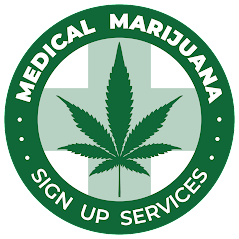Medical Marijuana Certification
Medical marijuana offers a safe and effective alternative for patients suffering from qualifying medical conditions in New York. If you have a qualifying medical condition in New York and want your medical card we make the process simple. Dr. Chauhdry can conduct an evaluation in our Suffolk County, Holbrook office in person or virtually online through his secure telemedicine platform. We treat patients “online” throughout the entire state of New York. Once you have your medical card you may enter a state approved dispensary and purchase cannabis products. Call to see if you qualify today!


Suboxone Treatment
When you’re consumed by an illness or battling addiction, we understand life can be difficult. Building and maintaining relationships, following your dreams, your career, and enjoying life, can all seem impossible. It doesn’t have to be that way. You don’t have to let addiction or illness hold you back from living your life. We provide a nonjudgmental safe environment of comfort and care so that our patients improve their quality of life. Dr. Chauhdry is an experienced Suboxone doctor that has treated opioid addictions successfully for many years. He is easy to talk to and prescribes FDA-approved drugs and behavioral therapies after an assessment is completed.
Always remember, you have a choice. Give us a chance to help you.
Frequently Asked Questions
Medical Marijuana FAQ's
You are eligible to procure medical cannabis in Long Island if you have been diagnosed with at least one of the qualifying conditions listed on the Medical Marijuana Program of the State of New York. The qualifying conditions include Cancer, HIV/AIDS, Opioid Replacement, Lou Gehrig’s disease/Amyotrophic lateral sclerosis (ALS), Parkinson’s disease, Multiple sclerosis (MS), Spinal cord damage with spasticity, Epilepsy, Inflammatory bowel disease (IBD), Neuropathies, Huntington’s disease, Chronic pain, Post-traumatic stress disorder (PTSD).
First, a registered medical marijuana practitioner, such as Dr. Chaudhry, will confirm you qualify and determine whether you are eligible for the Medical Marijuana Program. Dr. Chaudhry will provide a prescription AKA as a "certification" that can be used to file for a Registry Identification Card issued by the State of New York. With your prescription and registration card, you can obtain medical marijuana in state-approved and certified dispensaries.
In the State of New York, there are three ways to ingest medical cannabis. 1. Sublingual tincture, where liquid drops of marijuana are deposited under the tongue. 2. Through capsules/pills. 3. Inhalation through a vaporizer. It is illegal to smoke medical marijuana or to ingest it in the form of edibles in New York.
If you cannot visit dispensing facilities yourself, you can pick one or two caregivers who can pick up your medical marijuana for you. Caregivers must also register with the state to obtain a Registry Identification Card.
Contact the Long Island Compassionate Medical Center and schedule an appointment with Dr. Chaudhry. We promise to answer all your questions.
Yes, it is. There have been studies conducted on the efficacy of vaporization as a cannabinoid delivery device. These studies revealed that vaping is a safe alternative to smoking as it does not expose patients to combustion gases.
No, it hasn’t. The FDA has not reviewed medical marijuana as a treatment for pain because cannabis is a natural substance; the U.S. FDA does not evaluate natural botanicals. It only evaluates synthetic products manufactured by pharmaceutical companies.
Yes, they do. Many health organizations, including the American Public Health Association, the American Nurses Association, and the Epilepsy Foundation of America, are in full support of allowing patients who are qualified under state law to have access to medical marijuana as a treatment for pain.
No, it isn’t. Medical marijuana is an effective, safe alternative in treating the qualifying medical conditions in New York and is not ingested for the purpose of getting high.
Suboxone FAQ's
Suboxone/Buprenorphine is a medication used to help people quit or reduce their use of heroin or other opioids (pain relievers like morphine) o It comes as a dissolvable film strip (or sometimes a pill). The medication contains buprenorphine (an opioid medication) and naloxone (Narcan). If you take it under the tongue, the buprenorphine works in your body but the naloxone is not absorbed (not active). But if you crush it up and inject it or snort it, the naloxone is active and will make you withdraw if you have other opioids in your body (such as heroin or pain pills). This helps to make sure people only take it under the tongue and not inject the medicine.
“Maintenance treatment” is taking buprenorphine every day in order to: ♣ cut craving ♣ stop withdrawal symptoms for at least 24 hours ♣ act as a “chemical shield” – Suboxone/buprenorphine acts at the same place in the brain as heroin/pain pills, while you are taking Suboxone/buprenorphine it prevents you from getting high from other opioids.
Suboxone/buprenorphine is a medicine that helps to treat addiction to heroin, pain pills, and other types of opioids. It does not treat other kinds of addictions, such as alcohol, methamphetamine, marijuana, etc. o Medication treatment is very effective in keeping patients off heroin or pain pills. It treats withdrawal, cravings and decreases the risk of overdose.
Suboxone/buprenorphine is very safe with a low risk of overdose. But, when mixed with benzodiazepines (Zanax, Ativan, Valium, lorazepam, clonazepam) in large doses, or with large amounts of alcohol, there is a risk of overdose (a chance of stopping breathing and dying) o Just like taking pain pills or heroin regularly, your body becomes used to (physically dependent) on the Suboxone/buprenorphine so if you stop it suddenly, you will withdraw (“kick”). If you want to stop taking it every day, talk with your doctor first and it can be slowly stopped o Side effects are rare, but they can include constipation, headache, trouble sleeping, ankle swelling, trouble urinating; and rarely, liver irritation. o Pregnant women should not take Suboxone/buprenorphine. Instead they should use methadone or a different form of buprenorphine called Subutex. Small children and babies should never take Suboxone/buprenorphine, since it can cause them to stop breathing and die. It is very important to keep all Suboxone/buprenorphine away from babies and small children, and call 911 if they accidently taste or swallow some.
In October of 2002 the U.S. Food and Drug Administration approved Suboxone for drug treatment, and then later in 2006 it was approved for the same purpose in Europe. Canada began using Suboxone in 2007. In the meantime though, in 2003 the first ever Suboxone-based addiction treatment program was launched in the United States at Columbia University.
It is important to be in mild-to-moderate withdrawal when you take your first dose of Suboxone. If you have high levels of another opioid in your system, Suboxone will compete with the other opioid molecules and knock them off the receptors. Suboxone then replaces those opioid molecules on the receptors, but because Suboxone has less opioid effects than full opioid agonists, you may go into withdrawal and feel sick. This is called precipitated withdrawal. If you are already in the first stages of withdrawal when you take your first dose, Suboxone will make you feel better, not worse. Once your doctor has assessed your withdrawal symptoms and decided that you are ready to start Suboxone, you will begin Induction
Taken on its own, Suboxone has lower potential for fatal overdose than a full opioid agonist because it has a limited effect on reducing breathing. Taking more Suboxone does not affect breathing as much as full opioid agonists can, so it is less likely to cause death in cases of accidental or deliberate overdose when taken in the absence of benzodiazepines, sedatives, tranquilizers, antidepressants, or alcohol. Intravenous misuse of buprenorphine, usually in combination with benzodiazepines or other central nervous system (CNS) depressants, has been associated with significant respiratory depression and death.

 Linda Romano2021-12-07I want to take a moment to comment on your receiptionist/secretary/greeter Jaime Mergoni...I have been dealing with my sisters diagnosis of pancreatic cancer. I spoke with Jaime Mergoni from your office who was so cordial. compassionate and knowledgeable. She simplified everything I thought would be a project. thank you Jaime!!!!
Linda Romano2021-12-07I want to take a moment to comment on your receiptionist/secretary/greeter Jaime Mergoni...I have been dealing with my sisters diagnosis of pancreatic cancer. I spoke with Jaime Mergoni from your office who was so cordial. compassionate and knowledgeable. She simplified everything I thought would be a project. thank you Jaime!!!! J C2021-08-24Exceptional staff, caring, compassionate. Very knowledgeable physician able to provide me the precise medicine. Now I’m pain free!
J C2021-08-24Exceptional staff, caring, compassionate. Very knowledgeable physician able to provide me the precise medicine. Now I’m pain free! Kevin Sturm2020-08-18
Kevin Sturm2020-08-18
